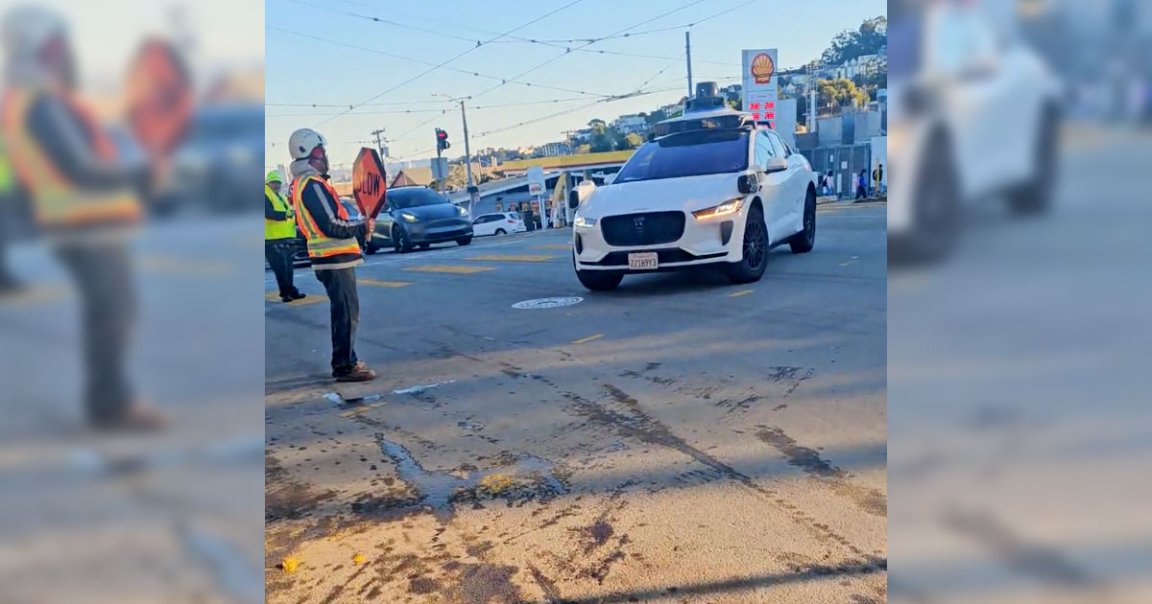
Wave Function Collapse
For years, Google’s Waymo driverless taxis have been wreaking havoc on San Francisco streets — and an increasing number of other cities as the service expands — triggering traffic jams, getting stuck in roundabouts, and even colliding with a delivery robot.
And when it comes to construction sites, a common fixture in any metropolis, Waymos are having a hard time.
Look no further than a video circulating on social that shows a Waymo cab struggling to decipher the hand signals of a construction worker, juddering to a halt and refusing to turn left.
The incident highlights persistent shortcomings with driverless ride-hailing tech, often related to chaotic edge cases: despite years of research and tens of millions of miles driven, simple hand signals can still seemingly pose an insurmountable obstacle.
Mixed Signals
It’s unclear what exactly caused the Waymo to become so paralyzed. Confusing matters is the Stop sign the construction worker is pointing at the vehicle, suggesting the car’s software was befuddled by the mixed signals.
“That is a big red stop sign,” one Reddit user argued in a subreddit dedicated to the company.
Nonetheless, a human driver likely would’ve had no issues navigating the situation, responding to the construction worker’s waving arm with ease.
Ironically, Waymo’s driverless vehicles recently passed an independent review by German tech inspection company TÜV SÜD, which found that the company’s First Responder Program “meets industry standards,” including the ability to respond to hand signals for traffic cops.
In early 2019, Waymo first demonstrated its cars’ ability to follow signals from a police officer.
But given the latest run-in, the company’s software is far from foolproof even over half a decade later. Case in point, last year one of its cars was pulled over by a police officer after driving down a busy road in the opposite lane.
And chances are we’ll see plenty of similar run-ins in the near future as well. Waymo made its autonomous ride-hailing service Waymo One available in Los Angeles in April and in San Francisco in June, years after rolling out the service in Phoenix.
The company is also planning to expand into other US cities including Austin and Miami, as well as its first international foray in Tokyo, Japan.
Whether its competitors, including Elon Musk’s Tesla, which is planning to roll out a similar service, will fare any better remains to be seen.
More on Waymo: Man Trying to Catch Flight Alarmed as His Driverless Waymo Gets Stuck Driving in Loop Around Parking Lot